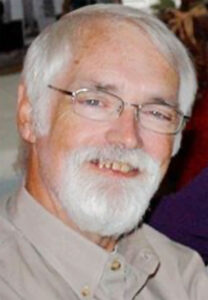Focal Passage: Acts 10:34-48
 Have you ever noticed how people react to one another in large groups or crowds? The peculiarities which become very distinguishable? How people begin to segregate from the larger group into smaller groups of commonalities.
Have you ever noticed how people react to one another in large groups or crowds? The peculiarities which become very distinguishable? How people begin to segregate from the larger group into smaller groups of commonalities.
Some might call what I have just described as a clique. I have always seen that term as being judgmental and a little harsh because it has always been used negatively against a group wishing to degrade someone else.
I say this because all of us are drawn toward this natural human behavior, and most likely, have done it ourselves. We feel most comfortable when we associate ourselves with those we know who have common interests and share similar beliefs, goals, experiences and ideologies. Most often we don’t have anything against the other people that may be present, but we like to stay in our little pond of familiarity.
To deviate from this tendency takes determination. It has to be intentional. Occasionally, we need to step outside our box and into someone else’s. That’s especially true within the church. One of the most devastating hinderances to church growth is when visitors enter the door of our church and leave feeling unincluded or not welcomed. If we are going to be Christ’s ambassadors, we have to make it a practice of reaching out to those who enter our doors that God has called. Today’s lesson focuses on that very thing.
The study begins with Peter still in Joppa after the resuscitation of Tabitha. He was staying in the house of Simon and had gone up on the housetop to pray. God gave him a vision of a sheet being lowered from Heaven with all kinds of animals, reptile, and birds. Then he heard a voice telling him to kill and eat. Peter protested. Then the voice commanded Peter not to call unclean what God had made clean.
Peter was confused as to the vision’s meaning. God was about to show Peter that the gospel was for all people, not just for those of Jewish persuasion. Though he saw that in Samaria, he wasn’t fully persuaded because the Samaritans also followed Jewish traditions. They shared many ancient Hebrew rituals with Jews, but were not considered Jews by mainstream Judaism. Peter was about to learn that God accepts all people who put their faith in Christ as His people, even if they previously never had recognized Him.
Meanwhile, God had been working with a centurion named Cornelius, a God-fearing man as described by Luke. God had given him a vision too and told him to send for Peter. He obeyed and sent men to look for Peter in Joppa. Upon finding him, they earnestly pleaded with Peter to return with them on behalf of Cornelius.
Peter accepted their invitation and returned with them to Caesarea and the house where Cornelius, along with his family and friends were waiting. When Peter entered the house, he discovered a large crowd was there. He began to share the gospel with them and the Holy Spirit fell on all of them just as it had on the disciples at Pentecost.
Peter finally saw the universal truth of saving power of the gospel. He recognized that we all must accept each other in Christ, even Gentiles. God accepts all those who put their faith in Him. We must do the same and be intentional in doing so. B&R

